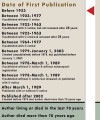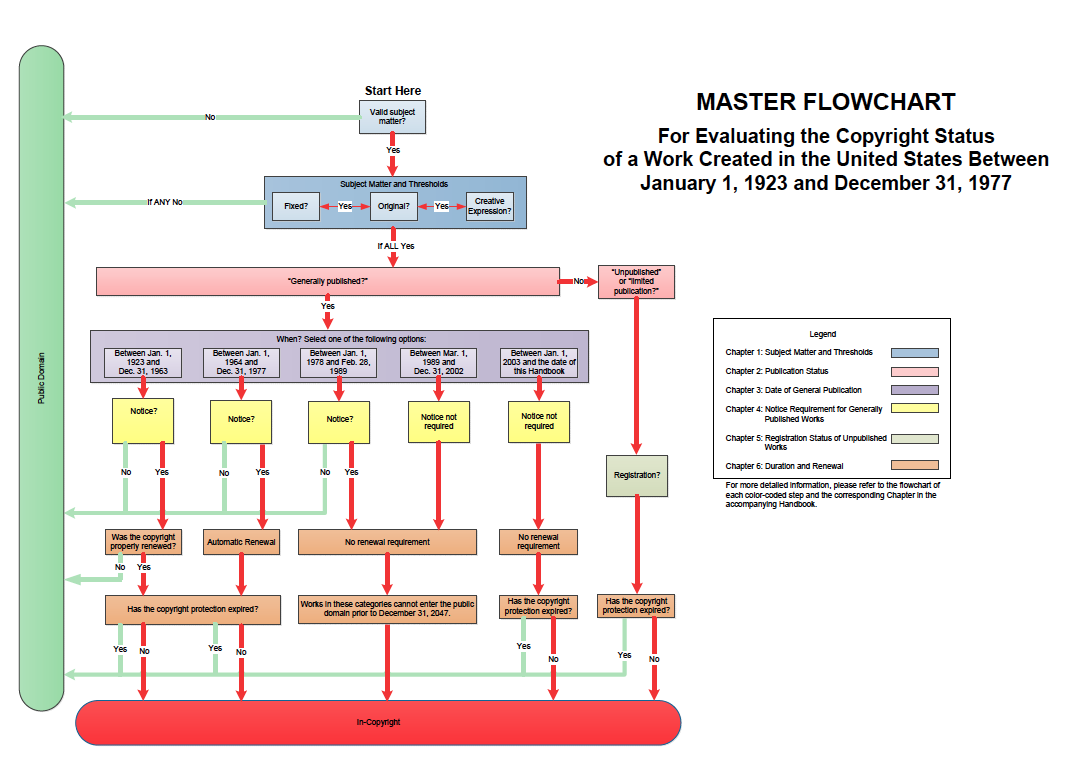
U.S. works from 1929 and earlier have entered the Public Domain, along with sound recordings from 1924.
January 1 is the day when works published in the U.S. 95 years ago enter the public domain making them free from copyright protection. This means they can be legally shared, without permission or fee. In addition to books, there are scores of silent films, famous Broadway songs, and well-known jazz standards. This year sound recordings from 1924 will become open for legal reuse.
To find more material from 1929 and earlier you can visit the Catalogue of Copyright Entries and Duke Law Public Domain Day 2025.
For more information on Public Domain Day see the Center for the Study of the Public Domain.
You can read more about the public domain in Professor James Boyle's book The Public Domain: Enclosing the Commons of the Mind (Yale University Press, 2008) — the full text is available for free here.
Last updated January 2025.
Works going into the public domain are the specific works from 1929 as are sound recordings from 1924. This does not include the later books, movies, or translations based on the original books, or all of the other work by that author. For example, while you are free to use
Here are just a few of the books that are now freely usable:
Public Domain Day 2024 by Jennifer Jenkins and James Boyle, Directors of Duke Law School’s Center for the Study of the Public Domain, is licensed under Creative Commons Attribution 4.0 License.
In 2022, under a new law called the Music Modernization Act, decades of sound recordings made from the advent of recording technology through the end of 1922 went into the public domain. In 2023 there was a pause, with no sound recordings entering the public domain. Beginning 2024, recordings from 1924 are open for legal reuse. You can download, remix, or use them in a soundtrack. Please note that only the 1924 recordings made by these artists are entering the public domain, not their later recordings.
To listen to old recordings, go to the Library of Congress National Jukebox—in 2025 the Library of Congress will make all of the 1924 recordings in its collection available for download from this site, while recordings from 1925 forward will be streaming-only until they are in the public domain.
Public Domain Day 2025 by Jennifer Jenkins and James Boyle, Directors of Duke Law School’s Center for the Study of the Public Domain, is licensed under Creative Commons Attribution 4.0 License.
Only the musical compositions—the music and lyrics that you might see on a piece of sheet music—are entering the public domain, not the recordings of those songs, which are covered by a separate copyright. The lyrics and music to Tiptoe Through the Tulips were published in 1929 and will be free for anyone to copy, perform, record, adapt, or interpolate into their own song. But the 1968 rcording by Tiny Tim is still copyrighted. Note, however, that sound recording rights are more limited than composition rights—you can legally imitate a sound recording, even if your imitation sounds exactly the same, you just cannot copy from the actual recording. To hear some great adaptations of public domain songs and other material, visit WNYC’s Public Domain Song Project.
Public Domain Day 2025 by Jennifer Jenkins and James Boyle, Directors of Duke Law School’s Center for the Study of the Public Domain, is licensed under Creative Commons Attribution 4.0 License.
2025 welcomes a dozen new Mickey Mouse films from 1929. Mickey speaks his first words -- "Hot dogs! Hot dogs!" -- and debuts his familiar whit gloves. 1929 marked a turning point in film, with sound films rapidly replacing silent cinema. Alfred Hitchcock, Cecil B. DeMille, John Ford, Harold Lloyd, and Clara Bow all released their first sound films, while Buster Keaton starred in his final silent feature. Please note that while the original footage from the listed films will be in the public domain, newly added material such as musical accompaniment might still be copyrighted.
Public Domain Day 2025 by Jennifer Jenkins and James Boyle , Directors of Duke Law School’s Center for the Study of the Public Domain, is licensed under Creative Commons Attribution 4.0 License.




